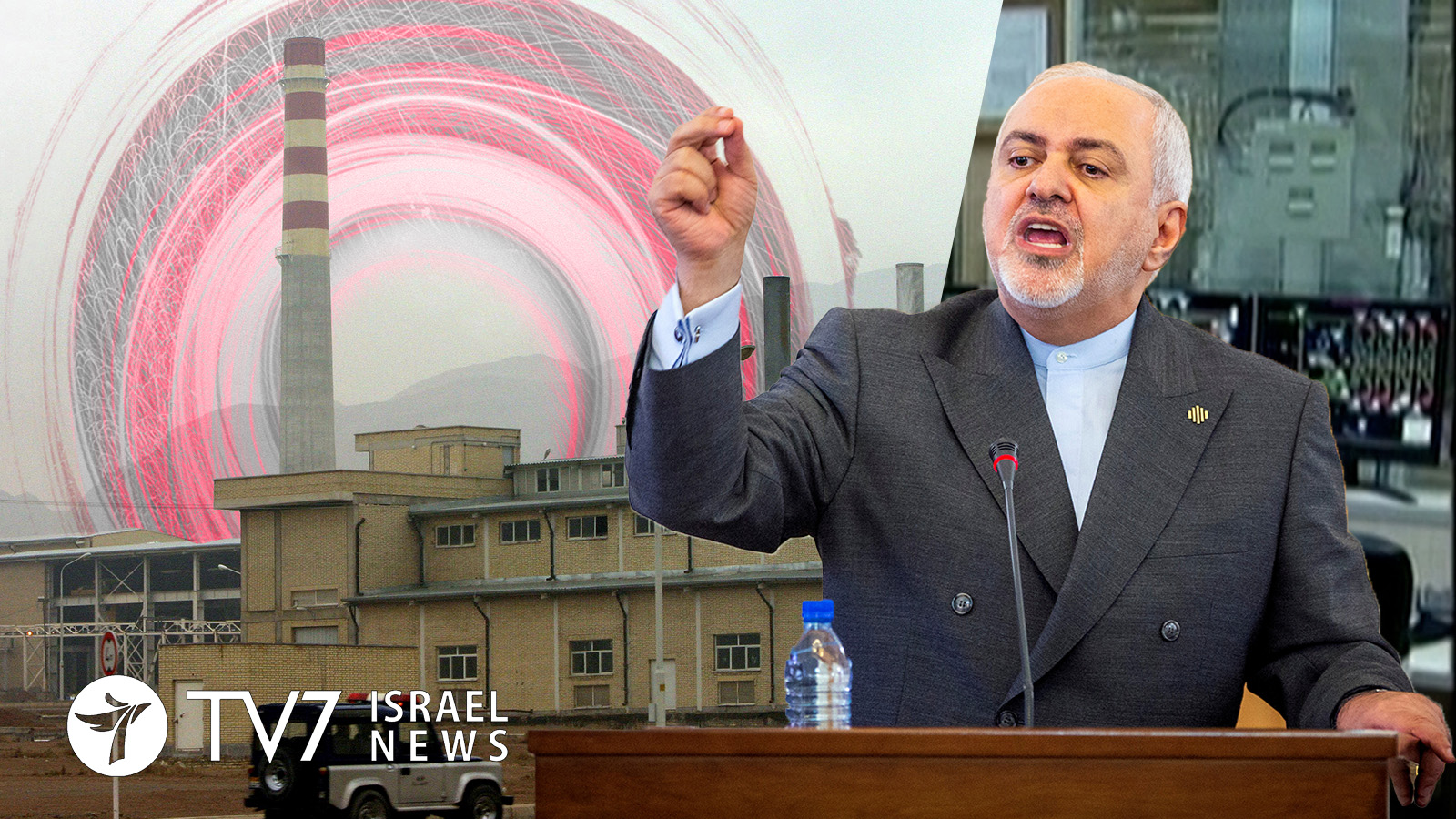Iran is accusing Israel of committing “nuclear terrorism” at the Islamic Republic’s main Natanz atomic site, and vowing strong retaliation.
“The Zionists want to take revenge because of our progress in the way to lift sanctions … they have publicly said that they will not allow this. But we will take our revenge from the Zionists,” state TV quoted Foreign Minister Mohammad Javad Zarif as saying on Monday.
Iran’s Atomic Energy Organization (AEOI) Spokesman Behrouz Kamalvandi initially reported that a problem with the electrical distribution grid at Natanz had caused an incident on Sunday, that caused no casualties or contamination. Iranian media later reported that Kamalvandi had an accident while visiting the site, “suffering a broken head and leg,” but failed to provide additional details.
Much of the Natanz uranium-enrichment plant is underground in the desert in the central province of Isfahan. It is the centerpiece of Iran’s uranium enrichment program and subject to inspection by the International Atomic Energy Agency (IAEA). “We are aware of the media reports,” wrote an IAEA spokesman by email to Reuters, adding, “We have no comment at this stage.”
Iran’s nuclear chief Ali Akbar Salehi immediately declared the act to be “nuclear terrorism” according to state TV, and asserted Tehran’s right to take action against the perpetrators.
“While condemning this despicable move, Iran emphasizes the need for the international community and the International Atomic Energy Agency to deal with this nuclear terrorism and reserves the right to take action against the perpetrators,” Salehi said. He went on to vow that, “To thwart the goals of those who commanded this terrorist act … Iran will continue to improve its nuclear technology on the one hand and to lift oppressive US sanctions on the other hand.”
Foreign Ministry spokesman Saeed Khatibzadeh told a news conference yesterday that the Natanz incident is an “act against humanity,” even though he maintained there were “no contamination or casualties.”
Khatibzadeh went on to vow that, “Our nuclear experts are assessing the damage but I can assure you that Iran will replace damaged uranium enrichment centrifuges in Natanz with advanced ones.”
It is interesting to note that the incident occurred just one day after the Islamic Republic celebrated “Nuclear Technology Day” at the Natanz plant held on Saturday, where President Hassan Rouhani presided over the launching of advanced centrifuges claimed to be more powerful and more efficient at enriching uranium.
A report published by the New York Times cited intelligence officials in the United States and Israel who claimed that Israel “played a role” in the incident, which was described as a power outage inflicted by a deliberately planned explosion that “completely destroyed the heavily protected internal power system that supplies the underground centrifuges that enrich uranium.” The blast was so powerful, said the sources, that restoration of uranium production would take at least 9 months.
Israeli media carried multiple reports in which unidentified intelligence operatives claimed that the country’s Mossad espionage agency in fact successfully sabotaged Natanz through a cyber attack aimed at setting back enrichment production, and that the damage caused was far more extensive than Iran is willing to admit.
Israel has not issued a formal comment on the incident.
While the Prime Minister’s Office (PMO) refused to issue a statement, the Israeli leader made cryptic remarks at a state ceremony yesterday.
“The struggle against Iran and its proxies, and the Iranian armament effort is a huge mission,” Prime Minister Benjamin Netanyahu told Israeli military and intelligence chiefs gathered to mark next week’s 73rd anniversary of independence, adding that, “the situation that exists today will not necessarily be the situation that exists tomorrow.”
IDF Chief of Staff Aviv Kochavi reportedly stated that, “Israel’s operations throughout the Middle East are not hidden from the eyes of the enemy, they are watching us, seeing the capabilities and carefully considering their steps.”
Israel has long accused its arch-foe Iran of seeking to acquire nuclear weapons that could be used to annihilate the Jewish State, and Tehran has blamed Jerusalem for a multitude of earlier incidents it said were sabotage attempts on its atomic program.
These include last year’s assassination of Dr. Mohsen Fakhrizadeh, who was seen by Western intelligence services as the mastermind of the covert development of nuclear weapons; a fire at Natanz in July 2020, and the 2010 Stuxnet computer virus used to attack the same facility, widely believed to have been developed by Israel and the US.
The latest incident comes amid efforts by Tehran and Washington to revive the 2015 Joint Comprehensive Plan of Action (JCPOA) nuclear deal. The two sides held what they described as “constructive” indirect talks in Vienna last week to explore how the US could return and bring the Islamic Republic back into compliance with terms of the deal; which former President Donald Trump abandoned in 2018 while re-imposing sanctions against the Ayatollah regime.
A senior US official with the administration of current President Joe Biden said Washington had no involvement in the Natanz incident, adding, “We have nothing to add to speculation about the causes.”
The most recent allegations also come during the first visit of a senior US Biden administration to Israel.
US Defense Secretary Austin Lloyd spent yesterday and today with his Israeli counterpart Benny Gantz, and is scheduled to hold talks with Prime Minister Netanyahu later this afternoon.
